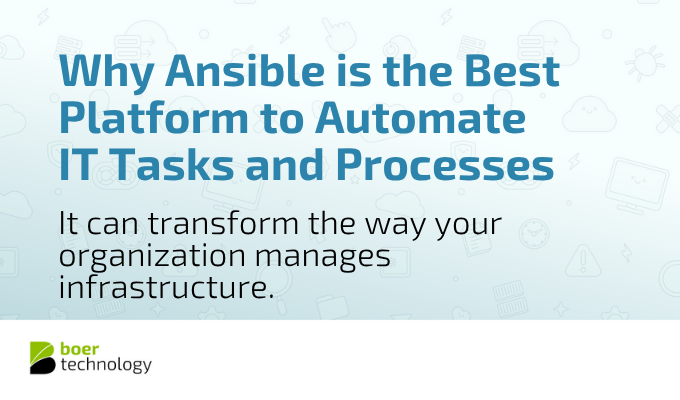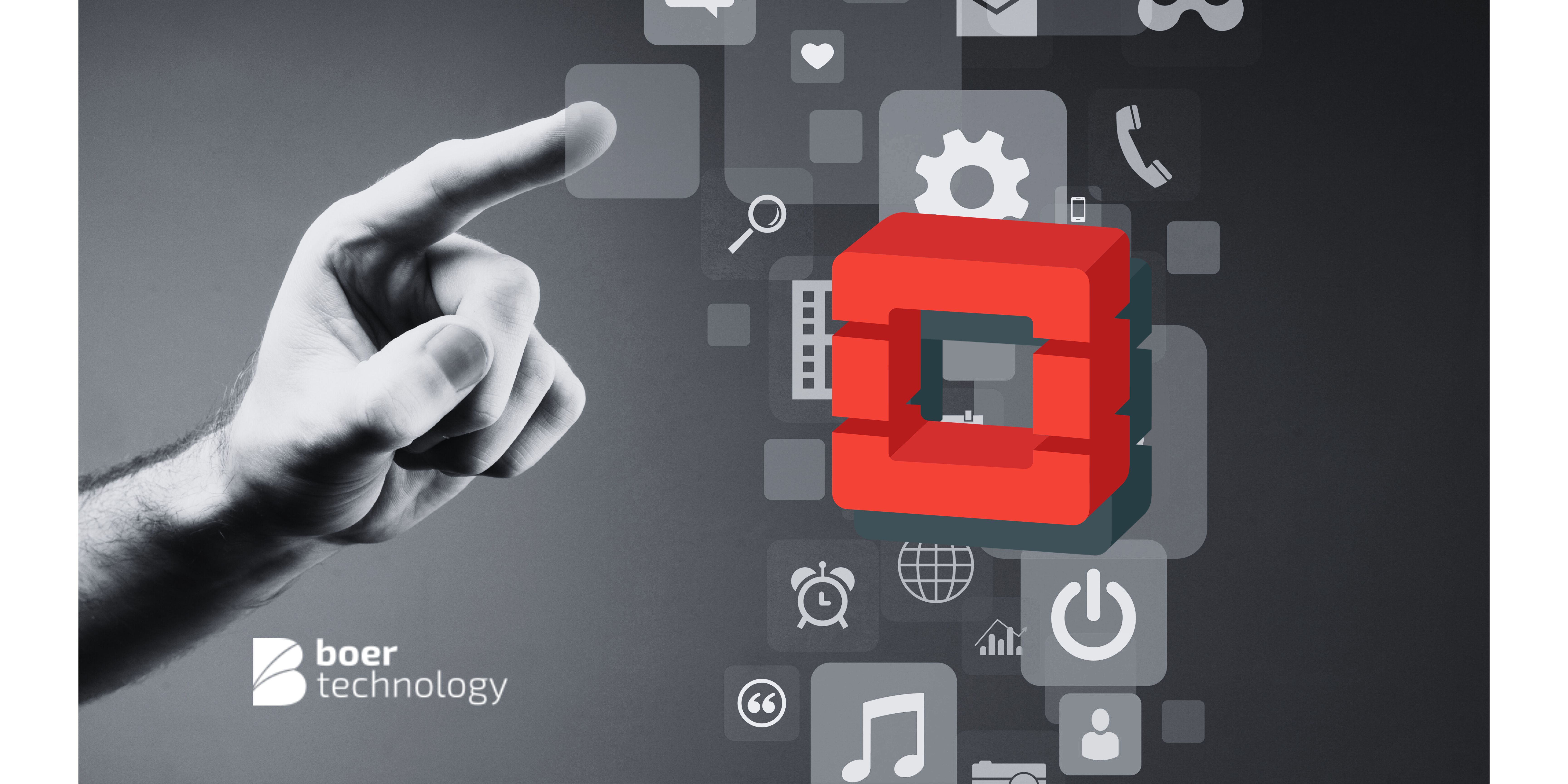In today’s fast-paced IT environment, automation is not a luxury—it’s a necessity. With the exponential growth of cloud computing, DevOps practices, hybrid infrastructure, and microservices architectures, IT teams are constantly under pressure to deliver faster, scale smarter, and respond more effectively to incidents and changes.
This is where Ansible comes in.
Developed by Red Hat, Ansible is a powerful, agentless automation platform that enables IT administrators, DevOps engineers, and developers to automate complex tasks, streamline workflows, and maintain consistency across infrastructure. Among many options available in the automation space, Ansible stands out as the most reliable, efficient, and future-ready platform.
Let’s explore why Ansible is the best platform to automate IT tasks and processes, and how it can transform the way your organization manages infrastructure.
Agentless Architecture
One of Ansible’s strongest features is that it’s agentless. Unlike other automation platforms that require a software agent to be installed on every managed node, Ansible connects over SSH (or WinRM for Windows) and executes tasks using simple commands.
This approach has several benefits:
-
Simplified setup and maintenance: No need to install and maintain agents.
-
Reduced security risk: Fewer moving parts mean a smaller attack surface.
-
Lightweight execution: Ansible leaves no daemons running or processes lingering.
This simplicity makes it easier to start with Ansible and scale quickly across hundreds or thousands of nodes.
Human-Readable YAML Playbooks
Ansible uses YAML (Yet Another Markup Language) to define automation tasks, written in what Ansible calls Playbooks. These playbooks are easy to read and write—even for people without a programming background.
A simple Ansible playbook to install Nginx might look like this:
- hosts: webservers become: yes tasks: - name: Install Nginx apt: name: nginx state: present
There’s no need to write complex scripts or learn a new programming language. YAML makes it clear what’s happening at every step, making collaboration between teams easier and reducing the chance of miscommunication or errors.
Idempotency and Predictability
Ansible is idempotent, meaning you can run the same playbook multiple times and the result will be the same, as long as the system state hasn’t changed. This makes your infrastructure:
-
Predictable: You always know what outcome to expect.
-
Safe: Avoid unintended changes or duplication.
-
Repeatable: Run tasks as often as needed without consequences.
Idempotency ensures reliable automation and minimizes risks in deployment pipelines and infrastructure updates.
Wide Ecosystem and Integration
Ansible supports a wide range of platforms and integrates with almost any technology stack, including:
-
Cloud providers: AWS, Azure, Google Cloud, OpenStack
-
Network devices: Cisco, Juniper, Arista, F5
-
Virtualization tools: VMware, KVM, Xen
-
Container platforms: Docker, Kubernetes, OpenShift
-
CI/CD pipelines: GitLab CI, Jenkins, CircleCI
-
Monitoring tools: Prometheus, Zabbix, Nagios
This wide range of integration means Ansible can orchestrate the entire IT stack from a single platform, consolidating your automation strategy.
Powerful Inventory Management
Ansible’s inventory system allows you to define and group your infrastructure in a highly flexible way. You can manage inventories in static files (INI, YAML), or dynamically by pulling from cloud APIs or configuration management databases (CMDB).
Dynamic inventory scripts allow you to manage real-time infrastructure from AWS EC2, Azure, or even your own private cloud without needing to update lists manually. This keeps automation relevant and responsive to changes in your environment.
Community and Enterprise Support
Ansible has one of the largest open-source communities in the automation space. The Ansible Galaxy hub offers thousands of pre-built roles that you can use, adapt, or contribute to. This massive library of shared resources accelerates deployment and minimizes the time needed to build from scratch.
For enterprises, Red Hat Ansible Automation Platform (AAP) offers a comprehensive, secure, and scalable solution. It provides:
-
A web-based dashboard
-
Role-based access control
-
Automation analytics
-
Certified collections
-
Governance and audit capabilities
This combination of strong community support and enterprise-grade tools makes Ansible suitable for both small teams and large organizations.
Cross-Team Collaboration
Automation should be inclusive—not exclusive to DevOps or sysadmin teams. Ansible bridges the gap between developers, operations, network teams, and even security teams. The simplicity of YAML playbooks enables anyone to contribute to the automation process.
This cross-team collaboration brings:
-
Faster time-to-resolution
-
Improved consistency
-
Fewer silos
-
Shared responsibility for infrastructure as code (IaC)
In short, Ansible promotes DevOps culture by encouraging collaboration and shared understanding.
Security and Compliance Automation
With infrastructure complexity comes security risk. Ansible allows teams to define and automate security policies and compliance checks.
You can automate:
-
Patch management
-
Firewall rules
-
CIS benchmarks
-
Vulnerability scans
-
SSL certificate renewals
By treating security as code, Ansible helps you build secure-by-default environments and maintain compliance automatically over time.
Scalability and Performance
Ansible is built to scale. Whether you're managing 10 machines or 10,000, its push-based architecture and parallel task execution ensure you can scale without performance bottlenecks.
Using Ansible Tower (part of Red Hat AAP), you can scale horizontally, distribute workloads, and monitor execution in real-time—all from a centralized dashboard.
Future-Proof Technology
With Red Hat (an IBM company) actively developing and supporting Ansible, you’re investing in a platform that is:
-
Continuously updated
-
Enterprise-ready
-
Cloud-native
-
Secure and certified
Ansible is already used by organizations like NASA, Capital One, Cisco, and countless others to manage mission-critical infrastructure.
By adopting Ansible, you're preparing your organization for the future of IT operations, including AI-driven automation, edge computing, and hybrid cloud orchestration.
Ready to Automate with Ansible?
Adopting Ansible doesn’t have to be complex. At Btech, we are a Red Hat Partner with proven experience in helping organizations implement Ansible-based automation solutions across different industries.
Whether you're just starting with automation, migrating from a legacy tool, or looking to scale your current Ansible implementation, we’re here to help.
✅ Design and implementation of automation workflows
✅ Custom playbooks and Ansible roles
✅ Integration with cloud and CI/CD tools
✅ Training and knowledge transfer
✅ Ongoing support and optimization
Contact Us
Let’s take your automation journey to the next level. Reach out to our expert team today:
📞 +62-811-1123-242
📧 contact@btech.id
🌐 www.btech.id
Make IT automation your competitive advantage—with Ansible and Btech.



